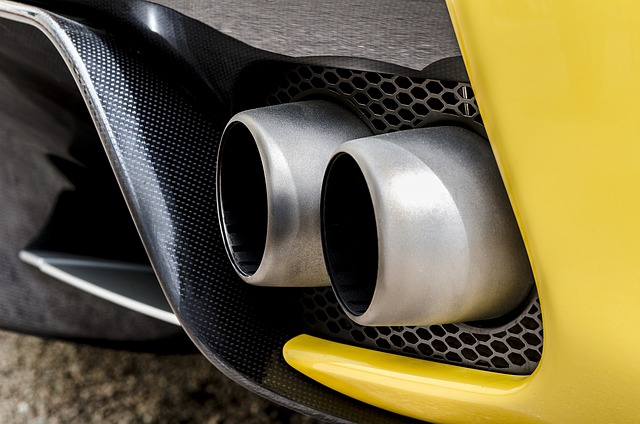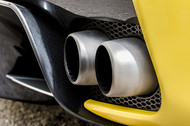Breaking Down the Colors of Exhaust Smoke and What They Mean
10th Mar 2023

What's the color of your vehicle's exhaust smoke? All vehicles with an internal combustion engine (ICE) produce exhaust gases. It's the byproduct of combustion. As your vehicle's engine burns gas and air, it will create exhaust gases that are ejected out the tailpipe.
Exhaust gases should typically be clear or mostly transparent. If there's a problem with your vehicle, however, you may notice a different color. If colored smoke is billowing out of your vehicle's tailpipe, you may need to investigate it.
Black Exhaust Smoke
Black exhaust smoke is a sign of a rich-running engine. Combustion engines are designed to burn a specific ratio of gas and air. Combustion engines that burn too much gas and too little air are known as "rich-running engines." If your vehicle has a rich-running engine, it may produce black exhaust smoke. Some of the excess fuel will remain unburned as it exits the tailpipe, thus creating the appearance of black exhaust smoke.
White Exhaust Smoke
White exhaust smoke is a sign of coolant or condensation. It's normal for vehicles to temporarily produce white exhaust smoke when initially started. This is the result of condensation inside the tailpipe. When you first start your vehicle, condensation inside the tailpipe will burn off while producing white exhaust smoke in the process. If your vehicle continues to produce white exhaust smoke, though, you may have an internal coolant leak.
Coolant contains water. Most vehicles use a 50/50 mixture of distilled water and antifreeze for the coolant. Coolant, of course, can leak out of automotive cooling systems. In the event of an external leak -- meaning coolant is leaking internally inside of your vehicle -- white exhaust smoke may occur. Coolant may leak from the radiator into the exhaust system. As it's burned, it will create white exhaust smoke.
Blue Exhaust Smoke
Blue exhaust smoke is a sign of an internal oil leak. PCV valve failure can result in an oil leak that causes blue exhaust smoke. PCV valves are devices that remove gases from the crankcase. The crankcase is the part of a combustion engine that holds the oil. If the PCV valve fails, oil may escape the crankcase and enter the combustion chamber.
Combustion engines aren't designed to burn oil; they are only designed to burn gas and air. If there's oil in the combustion chamber, it will create blue exhaust smoke. Whether it's black, white or blue exhaust smoke, you'll need to fix the underlying problem to protect your vehicle from costly damage.

